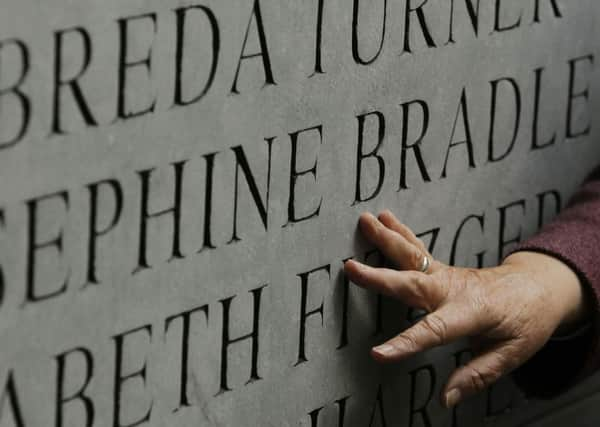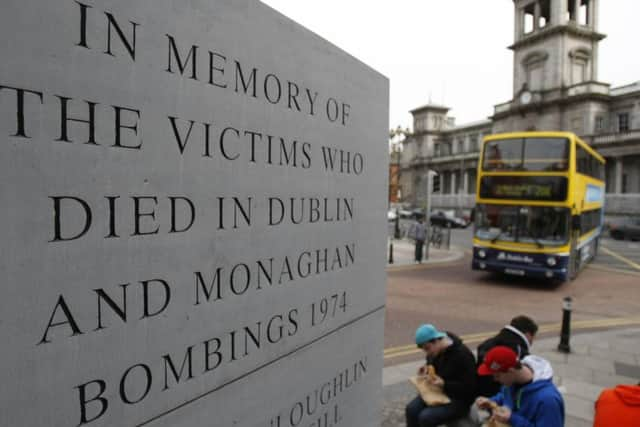Irish government to '˜actively pursue' access to Dublin-Monaghan bombings files


On the 42nd anniversary of the Dublin-Monaghan bombings, which killed 33 people including a pregnant woman at full term, Foreign Affairs Minister Charlie Flanagan said he would continue to demand the original police and security papers be opened.
“The Government will continue to actively pursue this objective, and we have made it a commitment in the new Programme for Government,” the minister said.
Advertisement
Hide AdAdvertisement
Hide AdA wreath-laying ceremony - organised by Justice for the Forgotten, which campaigns for an investigation into alleged British state collusion in the 1974 massacre - takes place on Talbot Street in Dublin, where one of the three bombs in the capital exploded.


Two others bombs were detonated on Parnell Street and South Leinster Street in the coordinated attacks in the middle of the evening rush hour on May 17.
About an hour and a half later the fourth no-warning bomb was set off in Monaghan town with the atrocities blamed on the Ulster Volunteer Force.
Among others to have called for the secret files to be opened is Irish President Michael D Higgins.
Advertisement
Hide AdAdvertisement
Hide AdMr Flanagan expressed condolences with relatives of the victims and the 300 others who were injured - the biggest death toll on a single day in the decades of political violence and terrorism.


The minister said the Irish Government has worked consistently to implement all-party parliamentary motions which call on Britain to allow access by an independent international judicial figure to all original documents on the bombings.
Sinn Fein president Gerry Adams also called for the classified documents to be opened.
“It is vital that the new Government lives up to the need to ensure the utmost pressure is put on the British administration to release their files,” he said.
Advertisement
Hide AdAdvertisement
Hide AdMr Flanagan said the Irish Government was also determined to get agreement with Northern Ireland politicians on how to deal with legacy issues from the Troubles.
“I will be working hard to see these institutions established, for the benefit of all victims and survivors and for our society as a whole,” he said.
“Such an agreement would, in some respects, help to further honour the memory of those 33 men and women who died on the streets of Dublin and Monaghan 42 years ago today and whose families still grieve their loss.”
Brendan Smith, Fianna Fail TD for the Cavan-Monaghan area, said Britain should remove all obstacles to a full investigation into alleged collusion.
“The least the victims and the families of all these atrocities deserve is the truth about who carried out these murderous deeds 42 years ago,” he said.